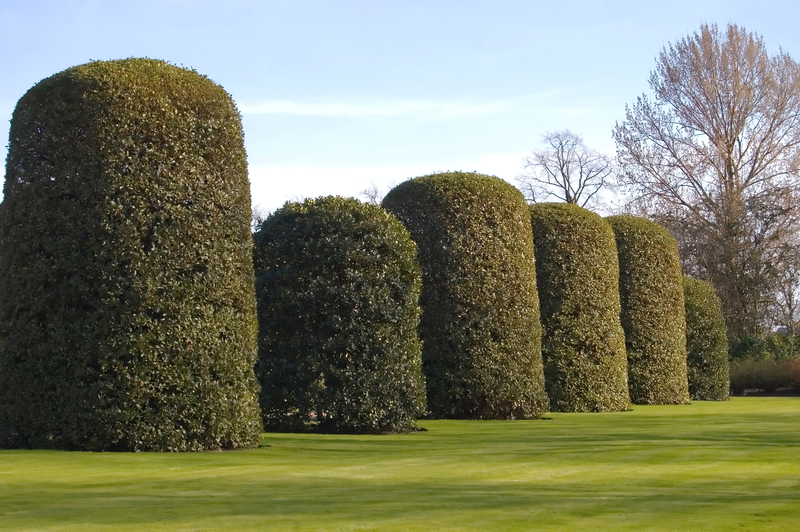Comparing Hardwood and Softwood Decking
Posted on 18/09/2024
Choosing the right material for your decking is crucial to ensure longevity, aesthetics, and overall satisfaction with your outdoor space. The two primary categories of decking material are hardwood and softwood. This article aims to compare these two types of wood, highlighting their features, advantages, and disadvantages to help you make an informed decision.
What is Hardwood Decking?
Hardwood decking comes from broad-leaved trees that grow slowly, which results in dense, hard wood. This type of wood is typically more durable and resistant to wear and tear compared to softwood. Commonly used hardwoods for decking include Ipe, Teak, and Mahogany among others.

Advantages of Hardwood Decking
One of the significant benefits of hardwood decking is its durability. Hardwoods are resistant to dents and scratches, making them ideal for high traffic areas. They are also naturally resistant to termites and other pests. Additionally, hardwoods have a beautiful, rich appearance that can be very appealing.
Disadvantages of Hardwood Decking
Hardwood's primary drawback is its cost. Hardwood decking is generally more expensive than softwood due to its quality and longevity. Additionally, it can be more challenging to install because of its density and heft. Regular maintenance, such as sealing and oiling, is also required to keep it looking its best.
What is Softwood Decking?
Softwood decking is made from trees like pine, cedar, and spruce, which grow quickly and have a lighter, less dense composition than hardwoods. Because of this, softwood is often easier to work with, making it a popular choice for decking projects.
Advantages of Softwood Decking
Softwood is an affordable option that is widely available. It is easier to cut, saw, and nail, making it a favorite among DIY enthusiasts. Softwood decking is also eco-friendly as the trees grow quickly, making it a renewable resource. Chemical treatments can enhance its durability, making it more resistant to rot and insects.
Disadvantages of Softwood Decking
Despite its initial affordability, softwood decking generally has a shorter lifespan compared to hardwood. It is more prone to dents, scratches, and general wear and tear. Untreated, it is less resistant to moisture and pest infestation, necessitating regular maintenance like applying protective coatings.
Pros and Cons
Both hardwood and softwood decking have their pros and cons:
- Hardwood
- Pros: Durability, natural resistance to pests, aesthetic appeal.
- Cons: Higher cost, difficult to install, requires regular maintenance.
- Softwood
- Pros: Cost-effective, easier to work with, renewable resource.
- Cons: Less durable, more prone to damage, requires chemical treatments.
Tips for Choosing Your Decking Material
- Consider the climate: In areas with high humidity and precipitation, hardwood may perform better due to its natural resistance to moisture.
- Budget: Softwood is generally less expensive, but consider long-term costs, including maintenance and replacement.
- Aesthetics: Think about the look you want to achieve. Hardwoods provide a richer appearance, while softwoods can be stained or painted to match your style.
- Usage: For high-traffic areas, hardwood's durability might be a better investment. For less frequently used spaces, softwood can offer adequate performance.

Key Takeaways
- Hardwood decking is durable, long-lasting, and visually appealing but comes at a higher cost and requires maintenance.
- Softwood decking is cost-effective, easier to install, and environmentally friendly but less durable and requires regular treatments to prolong its lifespan.
- Your choice should consider factors such as budget, climate, aesthetic preferences, and intended use of the deck.
Conclusion
Whether you choose hardwood or softwood decking depends on your specific needs, budget, and aesthetic desires. Both types have unique benefits that can enhance your outdoor living space. Hardwood offers exceptional durability and natural beauty, making it perfect for high-traffic areas, while softwood provides an affordable and environmentally friendly option that is easier to work with. By carefully weighing the pros and cons of each, you can select the solution that best fits your lifestyle and requirements.



